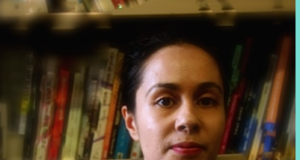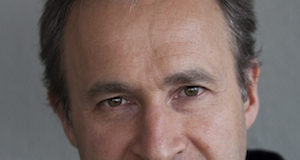Tag: psychiatric labels
New Podcast – is it Really Mental Illness?
From the University of Liverpool News: In a new podcast, Dr. Peter Kinderman, the vice-president of the British Psychological Society, argues that emotional distress is...
In Praise of Defiance
From Aeon: Throughout history, psychiatry has pathologized defiance and continues to label individuals who resist authority and stand up for their rights as mentally ill....
Is Mental Illness Real?
From The Guardian: Conceptualizing emotional distress or suffering as the result of a biological, genetic illness may be stigmatizing and inaccurate, and may lead to...
Crazy Talk: The Dangerous Rhetoric of Mental Illness
In this piece for Eidolon, Jessica Wright discusses the ways that labeling people as "crazy" and "mentally ill" has served to justify oppression throughout history....
10 Life Lessons I Learned as a Psychiatric Nurse and Patient
In this piece for Wake Up World, Cortland Pfeffer shares 10 life lessons he learned from his experience as a psychiatric patient, a recovering...
Rethinking Anxiety
In this interview with Jackie Dent, President of Clear Spot Club, social work lecturer Emma Tseris explains how labelling someone with an anxiety disorder fails...
Don’t Blame Trump’s Brain
From Discover Magazine: Using psychiatry and neuroscience to explain President Trump's personality and behavior leads to circular reasoning.
"We don’t need these kinds of quasi-scientific analyses of...
A Disorder for Everyone!
The initiative "A Disorder for Everyone!", which critically examines the culture of psychiatric diagnosis, has launched a new website. Click here to view videos of...
‘Mental Illness’ is a Harmfully Misleading Phrase
From The Good Men Project: "Mental illness" is a misleading phrase that often exacerbates the pain of people in emotional distress.
Article →
Changing the Stories we Tell Ourselves can Change our Lives
In this piece for The Nerdy Herbalist, one woman shares the way that framing her mood experiences as dangerous gifts, not symptoms or disorders, has impacted...
Choosing a Specialty: A Letter to a Medical Student
In this letter to a medical student considering pursuing psychiatry as a specialty, psychiatrist Nassir Ghaemi cautions that unlike other medical specialties, psychiatry can...
Scapegoating: Why Humanity Desperately Needs Hope to Cling to
How convenient to be able to deposit all our hatred, anger, fear, and worry into a pail that looks different and believes in stuff we don't understand. Or better yet, to be able to throw all of our sorrow, hatred, and pain into an abstract bin organized by the greatest piece of trash: the Diagnostic and Statistical Manual (DSM).
Spoiling Split: Hollywood’s Latest Run at ‘Alternative Facts’
Will ‘Split’ lead directly to someone dying or being beaten up? No, probably not. But, is it a pretty outrageous piece of evidence illustrating cultural trends that regularly represent people with psychiatric diagnoses as frightening and volatile? Absolutely.
Curing Schizophrenia via Intensive Psychotherapy
I believe that an Intensive Psychotherapy can lead to healing and, often, a cure of psychotic states. By cure I mean the cessation of delusions and hallucinations, and a gradual titration off of antipsychotic medication, with the cure lasting—even without continuing psychotherapy.
Jim van Os: New Vision for Psychiatry
Jim van Os, professor of Psychiatric Epidemiology at Maastricht University and member of the Royal Dutch Academy of Science with more than 700 publications, is one of the top one percent highly cited scientists in the world.
Psychiatry After Postmodernism
“If language is inherently unstable, then how can we hope to diagnose illness accurately?” asks psychiatrist Mark Salter in an article for iai news. “Naming things, abstract or concrete, is a form of categorization,” but, he adds, “it is important to remember that our categories say more about the categorizer than the categorized.”
The Recovery After an Initial Schizophrenia Episode (RAISE) Study: Notes from...
I was a psychiatrist who participated in the Recovery After an Initial Schizophrenia Episode Early Treatment Program (RAISE ETP). Although I welcomed the positive headlines that heralded the study's results, the reports left me with mixed feelings. What happened to render the notion that talking to people about their experiences and helping them find jobs or go back to school is something novel?
Is This Depression? Or Melancholy? Or…
We live in a culture bombarded by media and sped up by rapid-fire social interactions. It's definitely useful to grab hold of a simple, short, sound-bite term, to quickly describe what we are feeling or suffering. "Depression" is such a word - it evokes and encapsulates, conjures the images of that ugly pit of despair that can drive so many to madness and suicide. Yet at the same time the words we use, strangely, become like those pens deposited in medical offices and waiting rooms around the world: ready at hand, easily found, familiar -- and tied to associations, marketing and meanings we were only dimly aware were shaping how we think.
Psychiatry and the Problem of the Medical Model – Part 1
The mental health industry has a lot to answer. The psychologization of everyday life has eroded the range of human experience seen as normal, disempowered people to manage their own life challenges, professionalized helping relationships and undermined the already decaying support structures through which people found meaning and connection, stigmatized people through psychiatric labeling, led to iatrogenic misery from harmful treatments and traumatized already vulnerable individuals through excessively coercive practices.
When Homosexuality Came Out (of the DSM)
With a diagnosis of schizophrenia, if internalized, comes the erosion of personhood, lowered self-esteem, shattered dreams, and a sense of disenchantment. The psychiatrist Richard Warner has even suggested that those who reject the diagnosis of severe mental illness may have better outcomes as they retain the right to construct their own narrative of personhood and define what really matters for them. Despite public education campaigns (or perhaps because of them), the stigma of mental illness is as enduring as it was 50 years ago.
Science and Pseudoscience in Psychiatric Training: What Psychiatrists Don’t Learn and...
Evidence based care is supposed to drive up standards, ensure uniformity, establish best practice, guide clinicians and protect patients. This should be celebrated. Instead, evidence-based mental health is openly disparaged, and when psychiatrists don’t get the results they want, they ignore them, suppress them, or denounce them. These attitudes have repercussions on the training of psychiatrists.
From Blaming the Patient to Blaming the Brain
The idea of schizophrenogenic or refrigerators mothers was an embarrassing era for psychiatry, and so psychiatrists were only too happy to explore the brain and the genome to unlock the secrets of mental illness. Today, the rhetoric has shifted away from intrapsychical conflicts and traumatic ruptures, and instead aberrant neurochemistry or delinquent genes are held as the source of mental illness. Regardless, the message is clear: mental illness is beyond our control and requires psychiatric intervention. The moral authority the mental health industry claims over our mental life rests on this claim.
Setting the Intention to Heal: The Starting Point of Mental Health...
In my work facilitating depression support groups, I have discovered three essential factors to healing from depression, which I call ”the three pillars of mental health recovery.” In my earlier blogs for Mad in America I wrote about two of these pillars --connecting with community and using a holistic approach to treat symptoms. Now I would like to present the first and MOST IMPORTANT pillar — Setting the Intention to Heal.
Snail’s Pace Race
I live a slow paced life. I meditate every morning, refuse to get a smart phone (yet), and it takes me generous amounts of time to do things. This isn't because I am “stupid” or slow to get things. Sometimes I wonder how others get so much done each day - yet the quality and vibration of what I do is unique. It needs time. How does this relate with psychiatric drugs? Psych drugs are rooted in impatience, urgency, emergency.
Diagnosis Dilemma
Not long ago I had a conversation with a psychiatrist. He told me about a diagnostic dilemma he’d run up against at work; When a judge makes an unfunded treatment mandate as part of her judgment, she pressures the doctor to make a “payable” psychiatric diagnosis. If the doctor stretches the truth out of sympathy and provides an inaccurate but payable diagnosis so that his patient can have access to medical care and money to live on, he is committing fraud that can mean heavy fines and incarceration for himself.
























